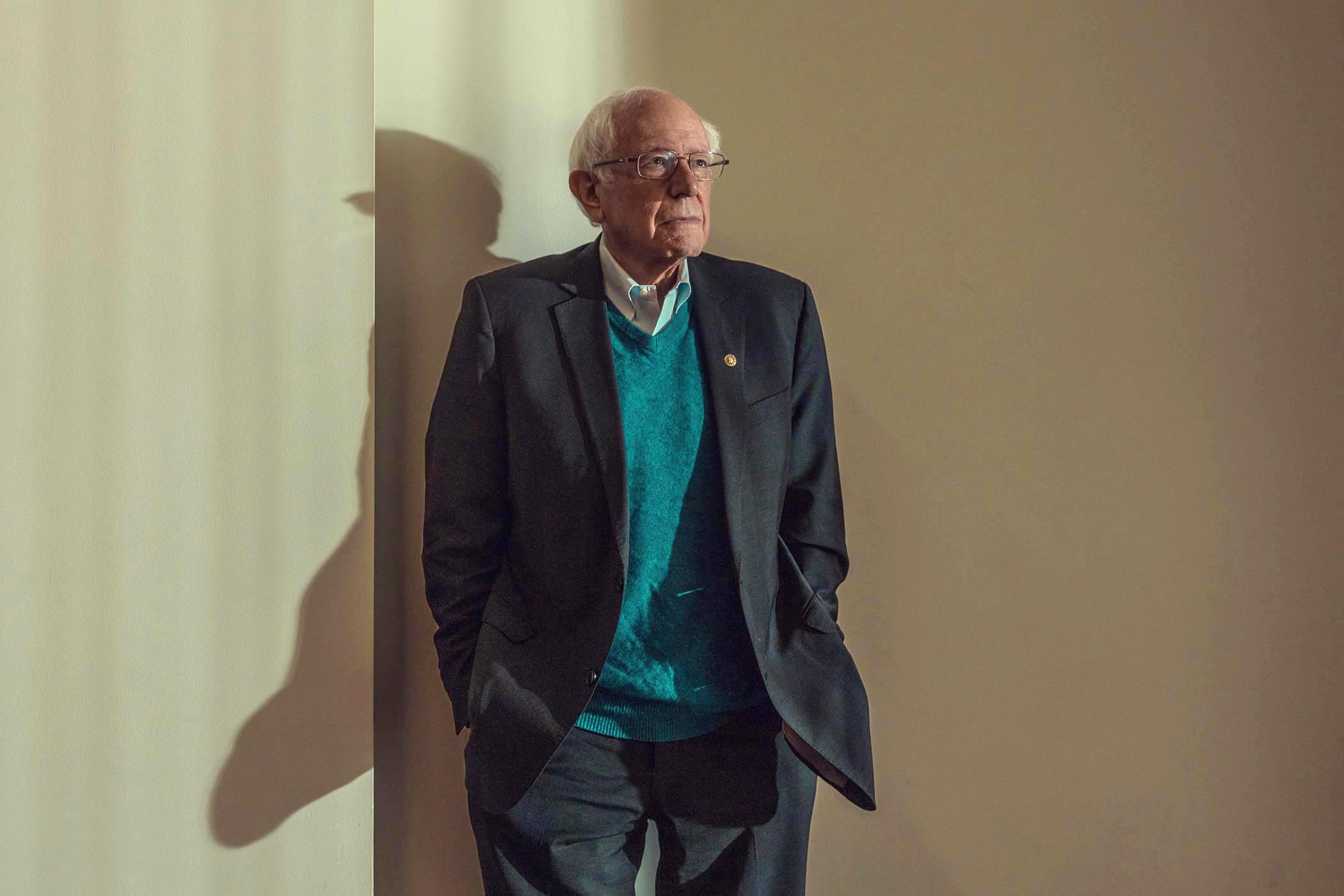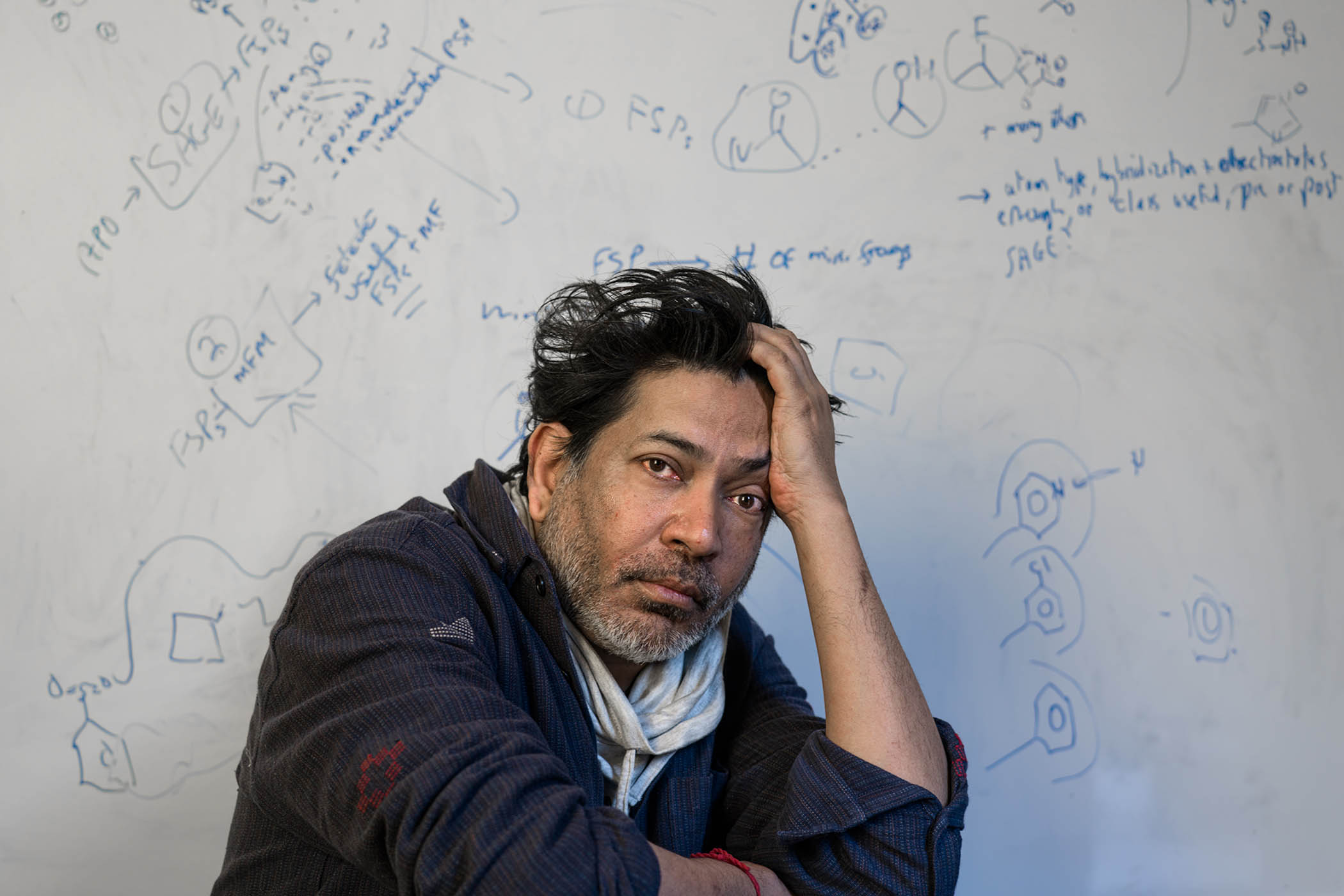Bernie Sanders, 84, has been the independent US senator for Vermont since 2007. He campaigned to be president in 2016 and fought unsuccessfully for the Democratic nomination in 2020. For most of this year he has been touring the US with Democrat representative Alexandria Ocasio-Cortez, speaking at rallies opposing the Trump government and its billionaire allies. His new book, Fight Oligarchy, delivers the message of those rallies.
I spoke to you at the time of your last book, It’s OK to be Angry About Capitalism, in 2023. Have there been two more surreal years in your lifetime?
I would simply say that this is an unprecedented moment in American history, maybe the most challenging time that my country has gone through since the civil war in the 1860s. We have a president who does not believe in our Constitution, does not believe in democracy, in the rule of law, who is a megalomaniac and a pathological liar. And this is something that we have got to resist.
A large percentage of working people supported this president. Do you understand why?
I can understand it. And I spent 24 hours a day, seven days a week, trying to deal with that. But the reason that Trump has won the support of many, many working people is not because they believe we should give a trillion dollars in tax breaks to the [richest] 1%; it’s not because they believe we should throw 15 million people off healthcare. I think Trump got that support from workers [because] they’ve looked at the Democratic party and they don’t see much. They don’t know what it stands for.
I guess they also liked the idea of repatriating jobs. They like the promise of more secure borders. Do you think the Democratic party ignored those concerns?
In some respects. But today the US is the only major country not to guarantee healthcare to all people. I understand the NHS has its problems but we are a country where our whole care system is collapsing. People are looking at all of the crises they are facing, and they’re not seeing an agenda from the Democratic party that makes sense to them.
In your book, you stop short of using the word fascism to describe the Trump government. Why is that?
I think we’re looking at a new phenomenon, but it’s a movement towards authoritarianism certainly: more and more power in the hands of a president as he attacks our freedom of speech, our freedom of press, goes after universities, after law firms. Nixon had an enemies list, but he didn’t implement it. [Trump is] literally having his department of justice prosecute people for opposing him. That’s something we have never seen.
When Robert Redford died, I watched All the President’s Men again. It seemed almost quaint, that Watergate level of corruption. Now it feels like that kind of thing is happening daily.
That’s exactly correct. Nixon was nickel and dime compared to what is going on. And one of the points I make in my book is that there is a direct relationship between the oligarchy [of Silicon Valley] and authoritarianism. You have these big tech guys who believe, from the bottom of their hearts, that they have the divine right to rule. If they lay off millions and millions of workers, hey, that’s the way it is. The challenge we face right now is to bring fundamental reforms to the Democratic party to make it a party of grassroots, of workers and unions. And I think the good news is that we are beginning to see some of that unfold right now in New York. Zohran Mamdani [the leftwing Democrat candidate in the forthcoming mayoral election] is heading the polls. He has a very good chance of winning, against the Democratic establishment, the oligarchs of this country, and Donald Trump.
Your political career began when you won a mayoral election in Burlington [in Vermont] in 1981, by 10 votes. Do you see yourself in Mamdani?
No, I think he’s a lot better than I was. Running a big city like New York, or London, is extremely difficult. What I like is, from day one, when we spoke, it was all about governing: what can I learn from your experience as mayor of Burlington? What did you do right? What did you do wrong?
He seems to have run his campaign in the same style that served you, talking to voters and listening to their answers. It doesn’t seem that radical.
When most politicians talk about listening, they mean listening to pollsters, to their consultants. They are told what they can say, what they can’t say. Mamdani is going out on the streets, and really listening to ordinary people. That’s new.
We ran a piece about Joe Rogan recently. I didn’t realise he’d supported you in the 2020 presidential primaries. Do you subscribe to his view that the Democratic party subsequently just stopped talking to working men, ordinary Joes, except to see them as a ‘toxic’ problem?
I think it’s part of it. But I think the problem in general is the Democratic party stopped talking to, and listening to, the entire working class of this country. In the last 52 years, real inflation means the wage of the average American worker has gone down despite an explosion of technology and worker productivity. Virtually all of that income and wealth has gone to the top 1%. That’s a European problem, too.
You’ve dealt with a lot of bullies over the years. What do you think when you see world leaders - like Keir Starmer - kowtowing to Trump in different ways to mitigate tariffs?
I do understand the difficulty. I’m not going to give your prime minister advice. What I will simply say is that here in the United States, we understand that if a schoolyard bully gets away with pushing people around, it only emboldens him. We are demanding that people stand up and say: “Sorry, Mr President, you’re not the king of the United States of America.” That’s what seven million people said the other day [at the No Kings rallies], and that’s the message we’re going to bring forth in every corner of this country.
Fight Oligarchy, published by Penguin (£9.99), is out now. Order a copy at observershop.co.uk for £8.99. Delivery charges may apply.
Photograph by Stephen Voss/Redux/eyevine
Newsletters
Choose the newsletters you want to receive
View more
For information about how The Observer protects your data, read our Privacy Policy
Related articles:



